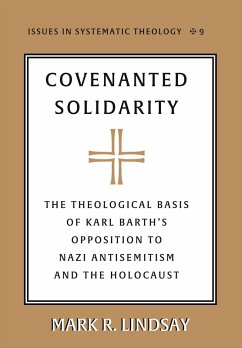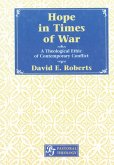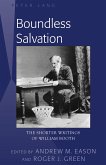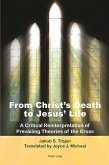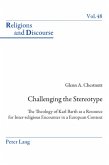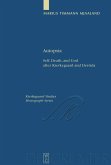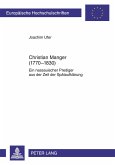This new work by Australian scholar Mark R. Lindsay explores the controversial issue of whether and how the Swiss theologian Karl Barth responded to the antisemitic policies of Nazi Germany. Drawing on, and arguing against, recent debates within the fields of Barthian, Holocaust, and Kirchenkampf literature, Lindsay argues that not only were Barth's political actions in thoroughgoing opposition to both the Nazi regime and its inherent antisemitism, but that this stance was firmly based on his dogmatic theology, in particular, the Church Dogmatics . On the basis of his interpretation of Barth's theology and its particular political expressions (such as the 1934 Barmen Declaration), Lindsay rejects the commonly held assumption that Barth was indifferent to the Jewish plight and suggests that his resistance was at least as comprehensive as Dietrich Bonhoeffer's.
"Recent research has shown that when it really counted, during the 1930s and 1940s, Karl Barth was far more intensively involved on behalf of the Jews than has previously been understood. His practical efforts grew directly out of his theology, which, despite current scholarly opinion, is not well described as "supersessionist". "Covenanted solidarity" - Mark R. Lindsay's happy alternative - is much closer to the mark. His book makes an outstanding contribution. The chapter on Karl Barth's anti-Nazi Christology is alone worth the price of the book." (George Hunsinger, Director, Center for Barth Studies, Princeton Theological Seminary)
"Mark R. Lindsay's meticulous study examines the vexed issue of Karl Barth's treatment of Judaism. By exploring the logic of Barth's thought in the context of his opposition to National Socialism, Lindsay reveals how Barth sought to overcome the antisemitism that bedeviled his culture. What emerged was a theology that sought to unite Jews and Christians as the people of God under one covenant. This volume is a significant addition both to Barth scholarship and to Jewish-Christian dialogue." (D. A. S. Fergusson, Professor of Divinity, University of Edinburgh)
"Mark R. Lindsay's meticulous study examines the vexed issue of Karl Barth's treatment of Judaism. By exploring the logic of Barth's thought in the context of his opposition to National Socialism, Lindsay reveals how Barth sought to overcome the antisemitism that bedeviled his culture. What emerged was a theology that sought to unite Jews and Christians as the people of God under one covenant. This volume is a significant addition both to Barth scholarship and to Jewish-Christian dialogue." (D. A. S. Fergusson, Professor of Divinity, University of Edinburgh)

